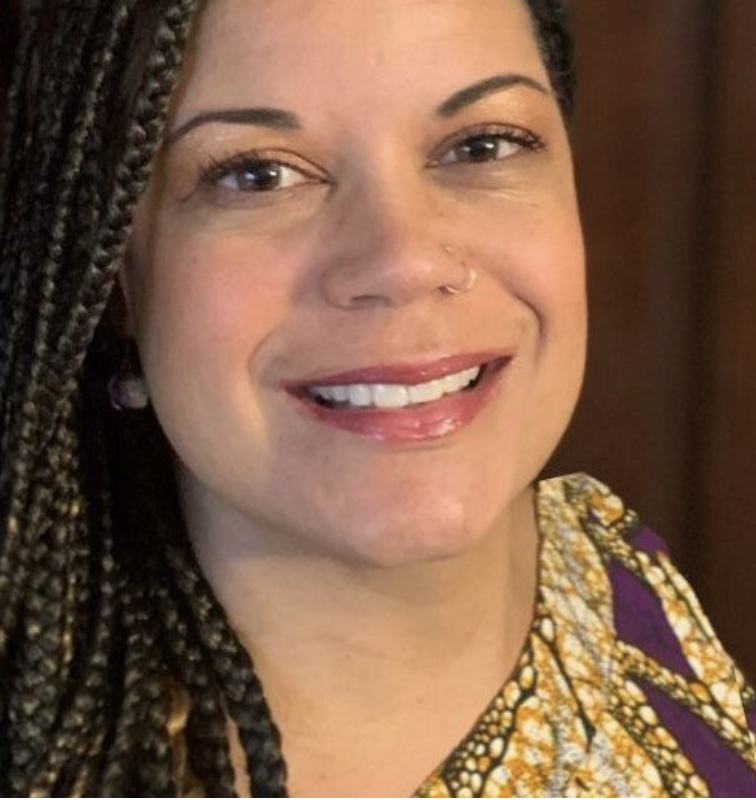Equipping the Church to Offer Trauma-Informed Care
09-01-2022
Sponsored by a grant from the Lilly Endowment, Inc., McCormick’s Trauma Healing Initiative helps the seminary develop a model for creating a trauma-informed, healing-centered culture within theological education institutions. It also aims to deepen relationships with faith communities and community partners to provide them with resources that can help them respond to institutional, historical, collective, and personal trauma among their constituents.
Most of the church’s pews were empty. After this service, there wouldn’t be a repast with family and friends sharing a meal and telling stories about their loved one. There would only be a socially distanced graveside prayer, after which, the small group of relatives would go their separate ways, without a comforting hug.
That’s how Rev. Randall Tate, M.Div.’18, a current D.Min. candidate, recalls funeral services during the pandemic. They were void of the closeness that normally would accompany the response from Congregational Church of Park Manor to families experiencing a loss. It had him asking how he could best serve grieving families, not only during this moment, but also in the months – and perhaps years – ahead.
“It’s important that we, as pastors, have a heightened sense of awareness of how people might be reacting to our new circumstances,” says Rev. Tate, referring to the multiple traumas the pandemic caused. “Are people isolating themselves? Are they doing things that are unusual? Do they have someone to talk to? We need to have this awareness for our members and for ourselves.”
Finding answers to some of Rev. Tate’s concerns are at the core of the seminary’s Trauma Healing Initiative. The initiative focuses on education about what trauma is, where it comes from, how and when it reveals itself, and offering programming dedicated to equipping pastoral leaders to help communities heal when traumatic events occur or recur. Its first order of business was to circulate a clergy survey designed to collect data about experiences like Rev. Tate’s that would inform its agenda.
This kind of education begins with community input as the foundation for trauma-informed, healing-centered engagement. This input guides McCormick’s efforts to help church leaders, students, and communities during a historic public health crisis and prolonged political and social unrest.
Shifting the culture
Sponsored by a grant from the Lilly Endowment, Inc., McCormick’s Trauma Healing Initiative will help the seminary develop a model for creating a trauma-informed, healing-centered culture within theological education institutions. It also aims to deepen relationships with faith communities and community partners to provide them with resources that can help them respond to institutional, historical, collective, and personal trauma among their constituents.
“We want to help leaders and persons in various forms of ministry to be part of response teams that can responsibly address the reality of trauma,” says Dr. Stephanie M. Crumpton, associate professor of Practical Theology and project director for the Trauma Healing Initiative. “We’re not creating a new center or institute but shifting the culture to equip the seminary and faith leaders with the resources, skills, and knowledge they need to handle the various ways that trauma shows up in our regular, everyday interactions, whether in a classroom, place of worship or community center.”
Working with Dr. Crumpton are Rev. Nannette Banks, M.Div. ’09, vice president of Community Engagement; Dr. Steed Davidson, dean and vice president of Academic Affairs; Dr. Jina Kang, assistant professor of Hebrew Bible; Dr. Itihari Y. Toure, associate dean for Curriculum Development and Assessment; Dr. Lis Valle-Ruiz, assistant professor Homiletics and Worship; and Stacy Williams, adjunct professor.
“There are several factors that we look at when we work to understand how experiences of trauma directly and indirectly affect learning,” says Stacy Williams, who has worked with educators in higher education to bring current research to bear on their pedagogical practices. “Safety, though, is of the utmost importance. It is essential that people have the agency to name what they need to feel safe. As leaders practice trustworthiness, offer choices, make room and time for collaboration, and provide peer support, individuals have opportunities to experience the empowerment that cultivates safety.”
Healing-centered engagement with trauma recognizes that church and community leaders are not usually clinically-trained therapists or counselors but, in their roles, they often find themselves attending to those struggling to cope with trauma. “Pastors and other leaders can draw on cultural and spiritual resources for grounding and centering the community,” says Williams. “They also can model what it means to take care of their own well-being. A unique characteristic of healing-centered engagement is that it pays close attention to the well-being of caregivers. Leaders come to recognize that their health and well-being are tied to the health and well-being of the communities they lead and serve.”
For Rev. Tate, it’s also affirmed his practice of leaving the virtual platform open after the Sunday morning service so that members can fellowship and support each other. “When you listen in, you can hear hope,” he says. “People are finding healing by connecting and sharing. The pandemic has created a new understanding about trauma and the role churches can have in helping people heal from it.”
Dr. Stephanie Crumpton
Associate Professor of Practical Theology and project director for the Trauma Healing Initiative.
Rev. Randall Tate
M.Div.’18 and current D.Min. candidate
Stacy Williams
Adjunct Professor




